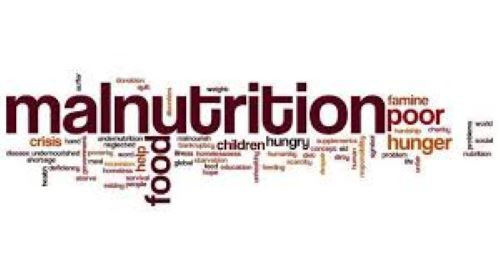The Katsina State Government has commenced a panel survey to identify communities affected by malnutrition across the 34 local government areas of the state.
The Acting Governor, Faruq Lawal-Jobe, disclosed this on Tuesday in Katsina at the official inauguration of the survey. He was represented by Bashir Tanimu, Commissioner for Local Government and Chieftaincy Affairs.
According to him, the survey will examine the prevalence of malnutrition among children under five, assess household and community-level food security, and identify vulnerable populations.
“It will ascertain communities with incidences of malnutrition, evaluate household vulnerability to food insecurity, and determine transfer value and the minimum expenditure basket of households in Katsina State,” Lawal-Jobe said.
He explained that the state government had procured 400 tractors to support farmers as part of a long-term food security intervention. The initiative, he noted, aims to transform agriculture through mechanisms farming and hybrid livestock production.
“The 34 LGAs in the state have also established mechanised centres, and these interventions are expected to more than quadruple agricultural production, boost agribusiness and deepen the agricultural value chain.
“Since the coming of Gov. Dikko Radda’s administration, the state has consistently provided subsidised fertilisers to farmers to ensure bumper harvests,” he added.
Lawal-Jobe said the survey would enable the government to gather accurate and reliable data to guide evidence-based policymaking and targeted interventions.
“This assessment will help us identify areas of vulnerability and opportunity where our interventions can have the greatest impact. It will also allow us to monitor progress and evaluate impact, ensuring that our efforts are both effective and efficient,” he stated.
He acknowledged that food insecurity and malnutrition remained a challenge in some communities.
“A survey showed that global acute malnutrition peaked at 17.5 per cent in the northern part of the state. However, I am pleased to learn that the rate has dropped to 11.5 per cent. We must remember that factors aggravating malnutrition are multifaceted.
“It is pertinent to note that the state has progressively increased its matching funds — from N200 million in 2023, to N250 million in 2024, and now doubled to N500 million in 2025,” he said.
Earlier, Ahmad Filin-Samji, Chairman of the survey team, pledged that the team would diligently discharge its responsibilities. He explained that the survey is a comprehensive statewide exercise targeting more than 8,500 households across the 34 LGAs.
He added that over 200 trained enumerators, supported by supervisors and data monitors, would conduct the exercise in line with global standards to ensure accuracy, speed, and transparency.
Filin-Samji also urged the enumerators to view their task as an act of service to humanity.
Similarly, the Statistician-General of the state, Prof. Saifullahi Sani, stressed that data collection was critical in tackling malnutrition.
“I believe the best strategy to address malnutrition is to prevent it, rather than wait until it occurs and then spend resources trying to cure it,” Sani said.
He commended stakeholders and development partners for their continued support to the state.


